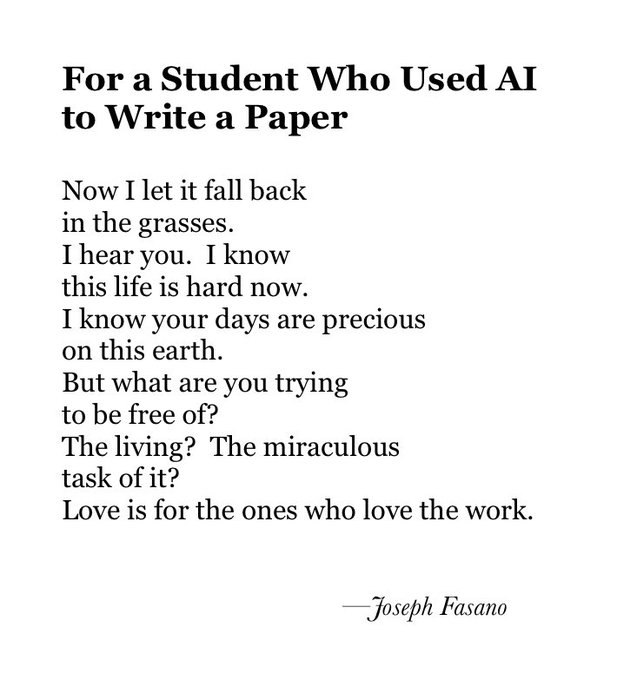
Accessibility
Language of accessibility policy from Flora de Tournay’s Writing About Writing class OER
Access is a cornerstone of this course’s design and your needs are of the utmost importance to me. Let’s hold space for physical disabilities, mental & emotional health, neurodivergence, illness, injury, grief & loss, and any other needs that I haven’t listed. Let me know how I can best support you and your learning.
If you need support in this or other classes, please reach out to the office of Special Services for Students with Disabilities via email at qc.spsv@qc.cuny.edu. I’m also happy to help you navigate this process. Additionally, mental health services are available to all students via the Counseling, Health & Wellness Center, which offers confidential peer support and counseling for free.
Attendance
I do not have a formal attendance policy for this class (i.e., as soon as you miss three classes you fail). Attendance counts towards your participation grade, and as such the quality of your work in-class and with classmates is more important than just showing up.
Your health and your family’s health should be your priority. If you are dealing with illness, sick family members, quarantine or isolation, a bad internet connection, increased anxiety, child care challenges, or any other issues, please reach out and we will figure out accommodations.
If some aspect of this class is not working for you, as long as your communications are clear and timely we can and will work together to find a solution.
Late work
In line with the above Attendance Policy, I am super flexible if life happens and you need an extension on any assignment. There is no official grade penalty for late work or missed deadlines. I only require you to notify me by email as soon as you know you need accommodation.
If the due date passes: We can still work together to coordinate submission of work, but as more time goes by the less flexible I can be with grading and even submission. You may lose points the longer work remains unsubmitted with no explanation, or I may decide not to accept the work if it’s late enough in the semester. Email me early on! I want you to succeed.
I will not be sending regular reminders to submit outstanding work. You are responsible for keeping your own calendar.
Participation
Language of participation policy from Center for Excellence in Learning and Teaching (CELT) at Iowa State University
All of us in the class, you, me, and your peers, are responsible for creating an environment where we can all learn from each other. I expect everyone to participate in class so we can all benefit from each person’s unique insights and experiences. Successful participation includes evidence of preparation, active and inclusive engagement, the initiative in asking questions, application of readings in responses and reflections, and synthesizing or prompting classmates’ comments during class discussion/lectures.
Student to Student:
– You collaborate with your peers, fulfilling your duties and exceeding your partner’s expectations.
– You work together during in-class collaborative activities. You actively contribute new ideas or refine what you originally proposed.
– You attend class.
– You use your device (if you are using one) responsibly and do not use it to complete other non-course-related tasks (i.e., sending emails, using social media, etc.).
Student to Content:
– You complete all of the readings for the week before coming to class.
– You share something in our in-class discussions.
– You introduce a new idea into our class discussions.
Student to Professor:
– You meet with me during student office hours.
– You send me an email asking a clarifying question about the course or ask for my feedback about an idea.
– You send me an article that you found that directly relates to what we discuss in class.
Student to Self:
– You think deeply in your reflections for practicum deliverables.
– You make connections between this course and your other courses, internship, career, etc.
Plagiarism and academic integrity
The Policy on Academic Integrity, as adopted by the CUNY Board is available to all candidates. Academic Dishonesty is prohibited in The City University of New York and is punishable by penalties, including failing grades, suspension, and expulsion.
This policy and others related to candidates’ issues is available for you to read on CUNY’s Academic Integrity page.

Respect
Language of respect policy from Guidelines for Classroom Civility and Respect at University of Massachusetts Amherst
Learning and the exchange of ideas may take place in many settings, including the formal classroom. When students and faculty come together, the expectation is always that mutual respect and civility will prevail to ensure that every student has the optimum opportunity to learn and that each faculty member has the best opportunity to teach. Disruptions of any kind affect the atmosphere of civility that is expected and interfere with the opportunity for learning and growth to which both faculty and students are entitled.
Differences of opinions or concerns related to the class should be welcomed if presented in a mutually respectful manner. The challenging of viewpoints is part of the academic experience, but should occur in a manner that opens up dialogue and does not threaten any member of the learning community.
Student behavior or speech that disrupts the instructional setting or is clearly disrespectful of the instructor or fellow students will not be tolerated. Disruptive conduct may include, but is not limited to:
– rude or disrespectful behavior
– unwarranted interruptions
– failure to adhere to instructor’s directions
– vulgar or obscene language, slurs, or other forms of intimidation
– physically or verbally abusive behavior
Writing
Language of writing policy adapted from the Illinois Writers Workshop’s College-Level Academic Writing Expectations
Language and literacy development is a process that takes time and practice, involves adapting to new contexts, and is individualized and nonlinear. Literacy skills—speaking, listening, reading, and writing—may develop at different rates. All students encounter challenges as they acquire advanced academic literacy proficiency due to its complexity and contextual variation. While academic discourse shifts across disciplinary contexts, there are some generalizable features to U.S. academic writing.
Most academic writing in the United States demonstrates features of writer-responsible texts (Hinds, 1987). In writer-responsible texts, the writer takes on responsibility for clearly and concisely conveying ideas to a reader: readers expect writers to do the heavy-lifting. As such, writer-responsible text should demonstrate the following three qualities:
– Unity: all elements of the text contribute to communicating a central idea
– Coherence: all elements of the text are linked and follow a recognizable organizational pattern (e.g., general information to specific, cause to effect, question to answer
– Emphasis: the main points of a text are adequately developed and organized according to their importance

